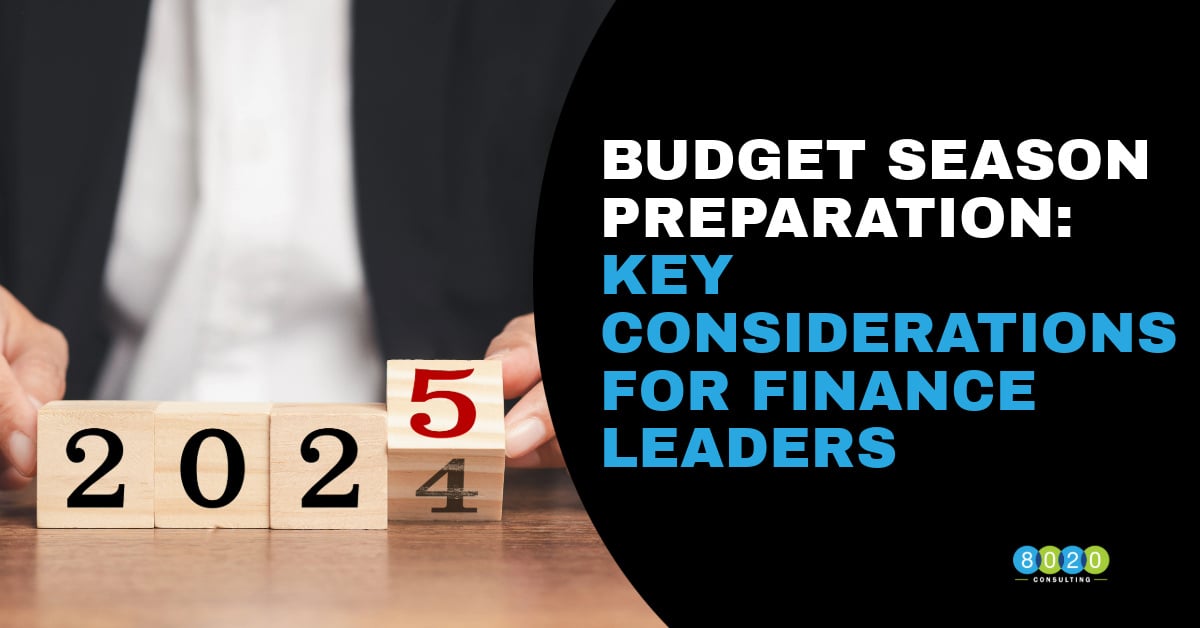
Budget season is a critical period for finance teams, particularly for companies on a December fiscal year cycle. During this time, finance professionals must balance multiple tasks: aligning budgets with corporate objectives, producing accurate forecasts, and managing the expectations of various stakeholders. The goal is to create a well-defined budget that supports strategic priorities while accommodating the dynamic nature of business environments.
Finance teams play a vital role in ensuring that budgets are not only accurate but also strategically aligned with the company’s growth objectives. A successful budget season requires meticulous planning, detailed communication, and strong collaboration across all departments. This guide provides a comprehensive approach to navigating the budget season effectively.
1. Align with Long-Term Plans
A solid starting point for any budgeting exercise is to refer to the company’s existing long-term plans and high-level financial targets. These targets typically include key performance indicators (KPIs) such as revenue, gross margins, operating expenses, and EBITDA. Even though macroeconomic conditions and competitive landscapes may change, these plans provide a baseline for developing more detailed, bottoms-up budgets.
When leveraging these long-term plans, it is crucial to consider recent developments that might affect the assumptions underpinning these targets. For example, changes in market conditions, regulatory environments, or internal operational capabilities can impact the budget’s initial framework. Finance teams should use these long-term targets as a reference point but remain flexible enough to adapt to new information.
2. Create a Budget Calendar
Creating a detailed budget calendar is essential for managing the various phases and dependencies of the budgeting process. Start by determining the final deadline for budget submission and work backward to identify key milestones. These may include the availability of actual financial results, the completion of current-year forecasts, and the dissemination of executive guidance to budget owners.
The calendar should account for multiple iterations, as each round of feedback from executive leadership or business units may require additional adjustments. Buffer time should also be built into the calendar to accommodate unforeseen delays or last-minute changes. By having a clear and structured calendar, finance teams can ensure that all stakeholders remain aligned and that the process flows smoothly.
3. Gather and Communicate Executive Guidance
One of the most important steps in the budgeting process is obtaining and communicating executive guidance. This guidance typically reflects the organization’s strategic priorities and financial goals for the coming fiscal year. Finance teams should approach executive leadership early in the process to gather input on revenue growth targets, margin expectations, and other financial metrics.
Once this guidance is obtained, it is essential to communicate it clearly to all budget owners. This communication should be formalized through written documents, such as emails or budget memos, that outline the expectations for each department or business unit. Regular check-ins or meetings may also be necessary to ensure that all parties are aligned with the executive team’s vision.
4. Prepare and Distribute Templates
Standardized templates are crucial for ensuring consistency and accuracy in budget submissions. These templates should be tailored to the unique needs of each business unit, reflecting specific drivers such as revenue growth, cost of goods sold (COGS), or capital expenditures (CapEx). For example, templates for revenue projections might focus on factors like customer acquisition rates or average deal sizes, while templates for operating expenses might emphasize headcount planning or marketing spend.
In addition to the templates, finance teams should provide detailed instructions on how to complete them. This may involve hosting training sessions or workshops to guide business units through the process. Clear deadlines should also be set to ensure that all submissions are received on time, and finance teams should be prepared to offer support throughout the submission process.
5. Receive, Review, and Consolidate Inputs
Once all budget submissions are received, the finance team must conduct a thorough review to ensure that the data is accurate and aligns with overall corporate objectives. This review process should involve sanity checks to identify any discrepancies or anomalies in the submitted data.
Coordination with business units is essential to resolve any issues quickly and effectively. In cases where significant revisions are needed, additional meetings or discussions may be required to clarify expectations and facilitate changes. Once all inputs are reviewed and consolidated, the finance team should prepare the final budget for executive approval.
6. Finalize and Communicate the Budget
- The final step in the budgeting process is to consolidate all inputs into a comprehensive budget document that meets the organization’s strategic and operational needs. This document should be reviewed and approved by executive leadership, with all necessary adjustments incorporated.
- After obtaining final approval, the budget should be communicated to all relevant stakeholders, including both high-level summaries and detailed breakdowns by department or business unit. This ensures that everyone in the organization is aligned and prepared to execute the budget effectively.
Conclusion
Navigating budget season successfully requires a combination of strategic planning, clear communication, and meticulous execution. By following these steps, finance teams can create a robust budget that aligns with corporate objectives and positions the organization for a successful fiscal year. If you’re looking for expert guidance on budgeting or financial planning, (#) today to learn how we can help.
Expert Guidance for a Successful Budget Season
Navigating the complexities of budget season requires expertise and strategic foresight. Whether you’re approaching your first budget cycle or refining your financial planning processes, our team of experienced consultants at 8020 Consulting can guide you through each step. Connect with us today to ensure your budgeting process sets a strong foundation for the upcoming fiscal year.



